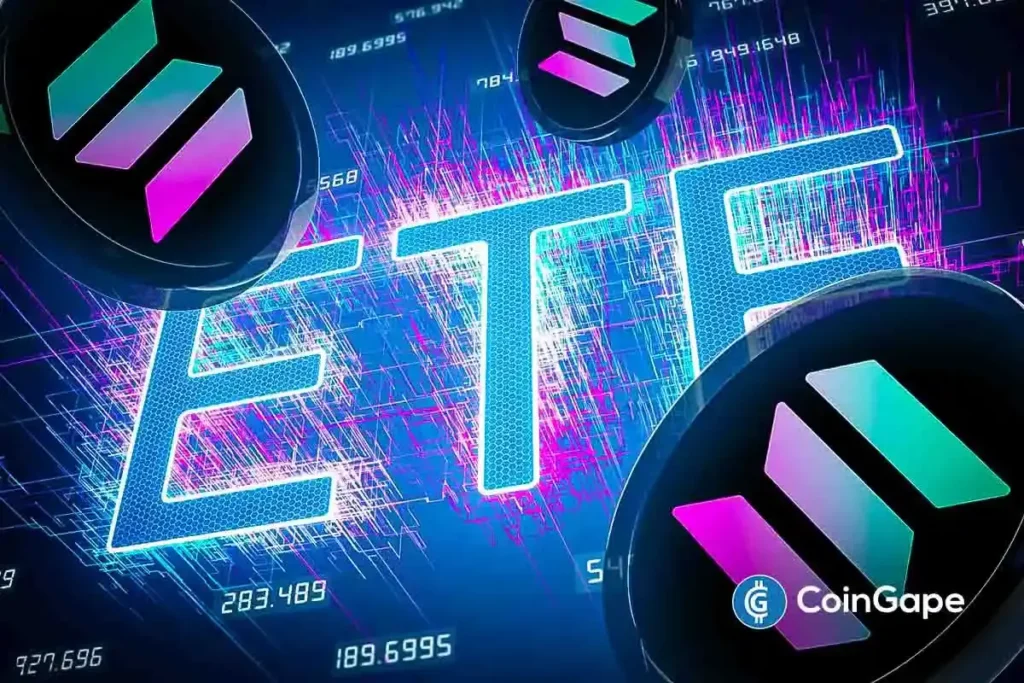Understanding the Groundbreaking Solana Staking ETF
The recent approval of the first Solana Staking ETF by the U.S. Securities and Exchange Commission (SEC) marks a significant development in the cryptocurrency landscape. This exchange-traded fund (ETF) enables investors to engage with Solana (SOL) in a manner akin to traditional stocks, while leveraging staking features. But what exactly does this mean for investors and the broader crypto market? Let’s explore the nuances of this new financial instrument.
What is a Solana Staking ETF?
As its name suggests, a Solana Staking ETF allows investors to invest in SOL via an exchange-traded structure. This means that purchasing units of the ETF is as straightforward as buying shares of commonly traded stocks. However, what sets this ETF apart is its staking mechanism, which provides an additional layer of investment appeal by generating rewards similar to the interest from high-yield savings accounts. Investors can now gain exposure to SOL while also earning yields through its staking features, all without the complexities of managing cryptocurrency wallets, validators, or exchanges.
How Does the Solana Staking ETF Operate?
The mechanics underlying a Solana Staking ETF are designed for ease of investment. The ETF issuer acquires and holds the actual SOL tokens on behalf of the investors. Should investors opt to stake their tokens, the issuer will handle this process for them. The staking process is not only beneficial for individual investors but also reinforces the Solana network’s security, as staking contributes to network validation. In return for participating in staking, investors earn rewards that function similarly to interest accrued on deposits.
Financial Implications: Yields and Taxes
The recent launch of the REX-Osprey™ SOL + Staking ETF signifies a pivotal moment for SOL investors as they can now benefit from both price appreciation and staking rewards. The ETF reflects the market performance of SOL, meaning that as the price of Solana rises, so, too, does the value of the investment. Additionally, the staking aspect offers an extra incentive to invest and potentially increases overall returns. Taxation on yields from the fund will apply, depending on local regulations. As with any investment, understanding these implications is crucial.
Milestones and Industry Impact
The REX-Osprey SSK ETF officially launches on July 2nd in the United States, establishing itself as the first Solana Staking ETF. Trading under the SSK ticker on the Chicago Board Options Exchange (CBOE), this ETF is crafted under the Investment Company Act of 1940 using a C-Corporation format, thus ensuring the legal processing of staking and reward distributions without significant regulatory hurdles. Experts believe that this could open the floodgates for additional altcoin-focused ETFs, further diversifying cryptocurrency investment opportunities. With its success, it also raises the prospect of influencing the SEC’s decisions on Ethereum staking ETFs, which faced roadblocks in the past.
FAQs about the REX-Osprey SSK ETF
The REX-Osprey SSK ETF is set to go live on July 2 and will be offered on the CBOE. Its distinctive structure permits it to utilize the Investment Company Act of 1940 with a C-Corporation format, thereby facilitating legally compliant staking and reward distributions. As the first-ever staking ETF, this fund is expected to pave the way for future altcoin ETFs, fostering a competitive landscape in cryptocurrency funds.
Conclusion: The Future of Crypto Investment
In summary, the launch of the Solana Staking ETF represents a remarkable advancement in how investors can engage with the cryptocurrency market. By combining the advantages of traditional ETFs and staking, the REX-Osprey SSK ETF offers a unique investment opportunity. As the crypto environment continues to evolve, such innovations are likely to attract both seasoned and new investors seeking to navigate the complexities of digital assets with ease. This development not only enhances investor accessibility but also may set critical precedents for future crypto-based financial instruments.


